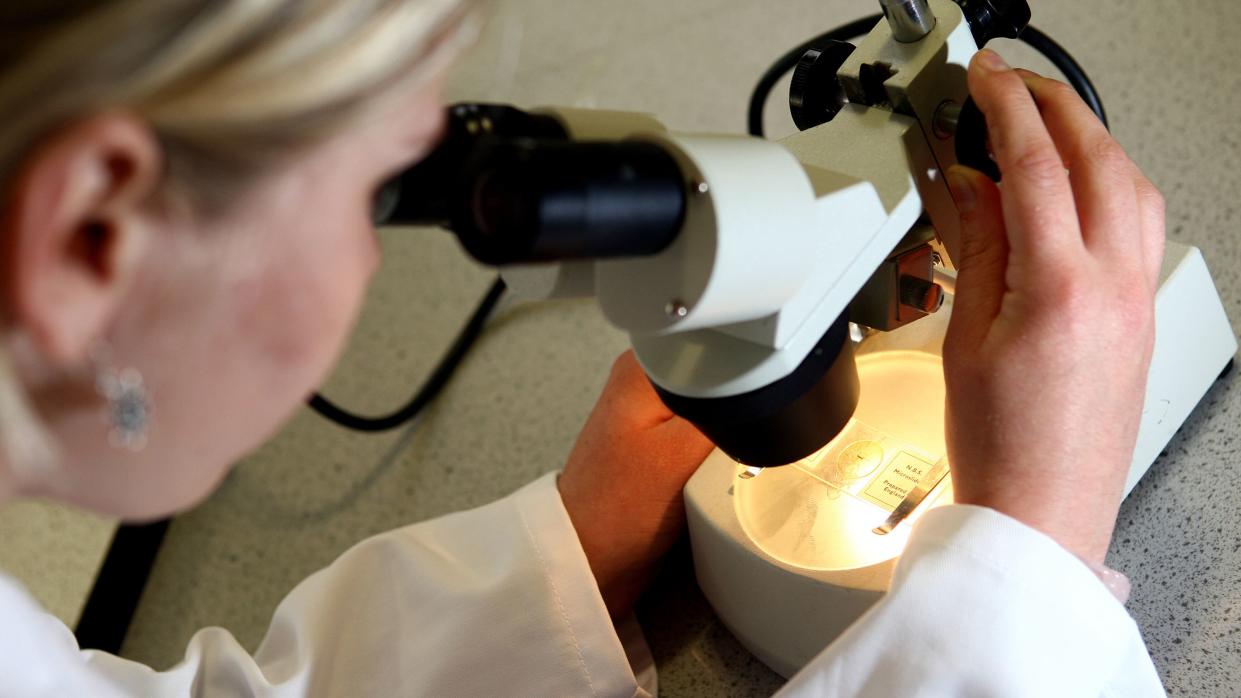Combining blood test with AI ‘could provide more accurate sepsis diagnosis’

Combining artificial intelligence (AI) with a simple blood test could help diagnose sepsis faster and single out patients at the highest risk of severe complications from the infection, a study has suggested.
The approach could save lives, according to Swedish researchers, who combined the unique molecular signature of sepsis with machine-learning to predict a person’s risk of organ failure and death.
Sepsis is life-threatening and can be difficult to spot, accounting for about 50,000 deaths each year in the UK.
Dr Lisa Mellhammar, of Lund University in Sweden, said: “It’s vital that patients with suspected sepsis are identified prior to the onset of organ failure.
“Given the challenges associated with timely diagnosis and the fact that sepsis kills millions of people around the world every year, there is an urgent demand for an alternative approach.”
She added that a blood test, combined with a personalised risk model, “has the potential to save lives by providing more accurate sepsis diagnosis and determining who may go on to develop more severe clinical manifestations”.
Researchers looked at 1,364 plasma samples of adults admitted to the emergency department at Skane University with suspected sepsis between September 2016 and March 2023.
Of the 1,073 patients with an infection, some 913 had sepsis.
The team then analysed proteins associated with the body’s immune response to sepsis to see if there was a pattern.
They created molecular signatures from their analysis, which was used to train an AI model to predict who was likely to go into septic shock.
Patients were classified as low, medium and high risk of developing septic shock, with the technology able to show how increasing risk was associated with a higher rate of death.
Dr Adam Linder, also of Lund University, said: “It’s difficult to predict who will get sepsis, who will recover, and who will have poor outcomes.
“We urgently need better ways to understand sepsis at the molecular level so we can classify suspected sepsis patients according to the clinical manifestations of their illness and identify high-risk patients and develop more effective treatments.”
Researchers also identified panels of proteins that predicted dysfunction in six different organ types, including the heart, liver and kidneys.
They then classified patients into five risk categories based on the probability of them having organ dysfunction and infection, and their risk of dying.
Dr Mellhammar added: “A fast test that provides more accurate sepsis diagnosis and could also predict who is at greater risk of poorer outcomes now seems a genuine possibility.
“Any research like this needs clinical validation and many hurdles must be cleared before these biomarkers are used in the clinic. But we envision this as a tool that could be deployed worldwide, as the future of early detection of sepsis.”
The findings of the study will be presented at the European Congress of Clinical Microbiology and Infectious Diseases in Barcelona at the end of April.
Dr Ron Daniels, founder and joint chief executive of the charity UK Sepsis Trust, said: “It’s critically important that we speed the recognition of sepsis and identify sooner which patients need the most immediate attention, ensuring that we can save more lives whilst using antimicrobials more wisely.
“This research has huge potential to refine our understanding of sepsis and may in time help us to redesign clinical systems.
“As the authors acknowledge, sepsis is a complex syndrome and this technology is not yet street-ready, but it is a significant step in the right direction.”
It comes as NHS England prepares to roll out the first phase of Martha’s Rule from next month.
The escalation process is designed to formalise access to a critical care team for a second opinion if a patient’s condition is rapidly worsening and they or their family feels they are not getting the care needed.
Martha Mills, 13, died in 2021 after developing sepsis from a pancreatic injury she suffered after falling off her bike.
Her parents, Merope Mills and Paul Laity, raised concerns about their daughter’s health a number of times but these were brushed aside.
At least 100 NHS trusts are expected to bring in Martha’s Rule, with the programme evaluated throughout this year and next.


